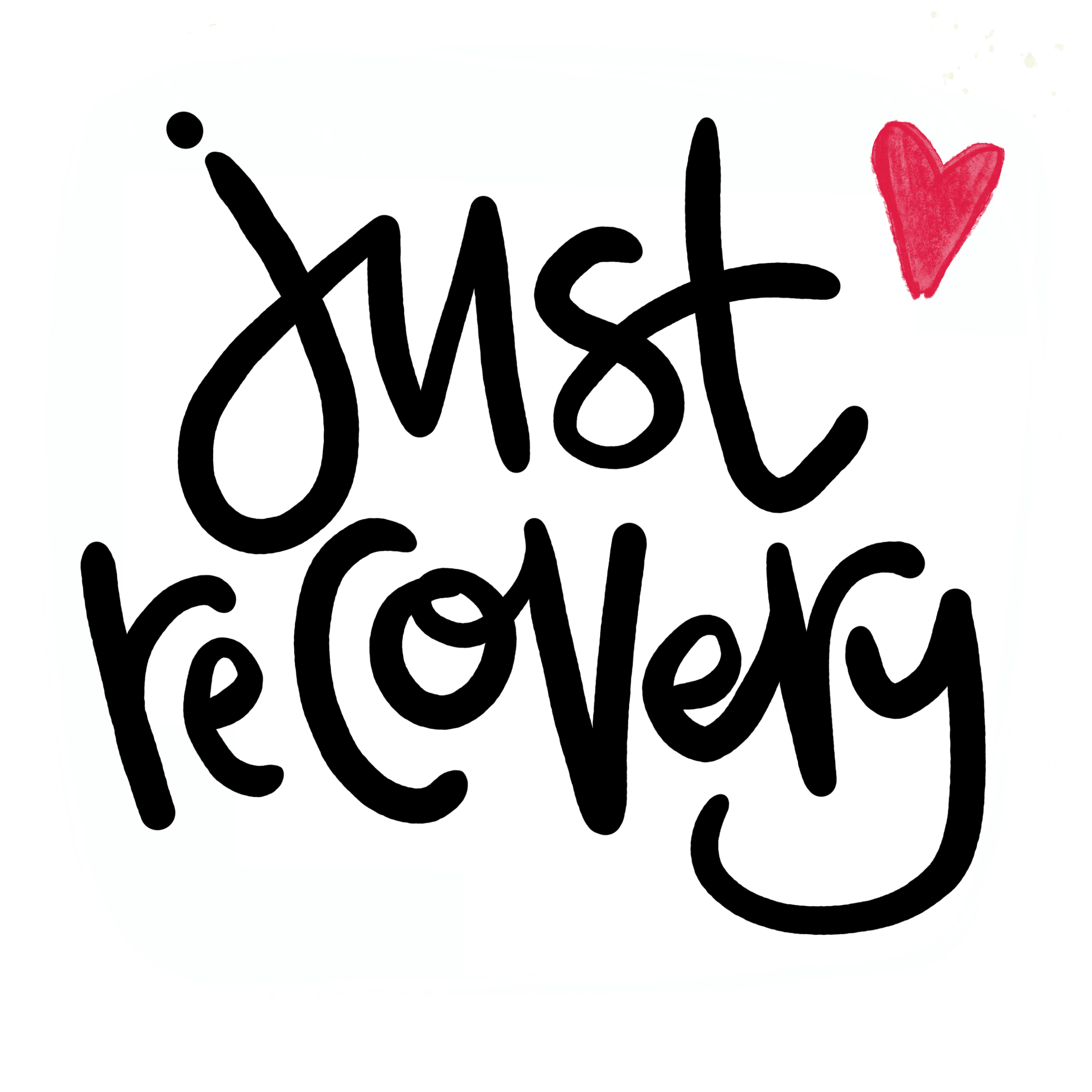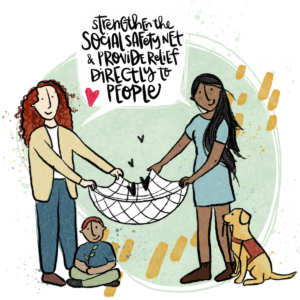We’re building a movement for a just recovery

We can’t go back to business-as-usual after the #COVID19 pandemic. That’s why we’re building a movement for a #JustRecoveryforAll that puts people first.
As we continue to respond to the COVID-19 health crisis and prepare to rebuild, organizations across Canada want governments to know that we cannot go back to the way things were.For years, we have witnessed the results of chronic underinvestment and inaction in the face of the ongoing, pre-existing crises of colonialism, human rights abuses, social inequity, ecological degradation, and climate change. Now, the COVID-19 crisis is forcing governments and civil society alike to reckon with the inadequacies and inequities of our systems.
This moment is a reminder that the status quo can and must be disrupted. We are standing on the threshold between the old world and the next and we must choose to build the future we want.
more
As governments and institutions begin to make plans to “recover” from the COVID-19 emergency, civil society groups across Canada have come together to demand that these plans build the resilient future we need for all people and ecosystems. Recovery efforts must not take us backward; they must accelerate the transition towards a more healthy, sustainable, and equitable society.To do so, we have identified six Principles of a Just Recovery. These principles stretch us beyond immediate, emergency responses to consider how we might “build back better” so that our economy supports all people, instead of people working to support the economy. Instead of sacrificing people or the planet for short-term profits, these principles guide us to a society that prioritizes resilience and wellbeing. All recovery plans should meet these essential criteria in their design, implementation, and evaluation.
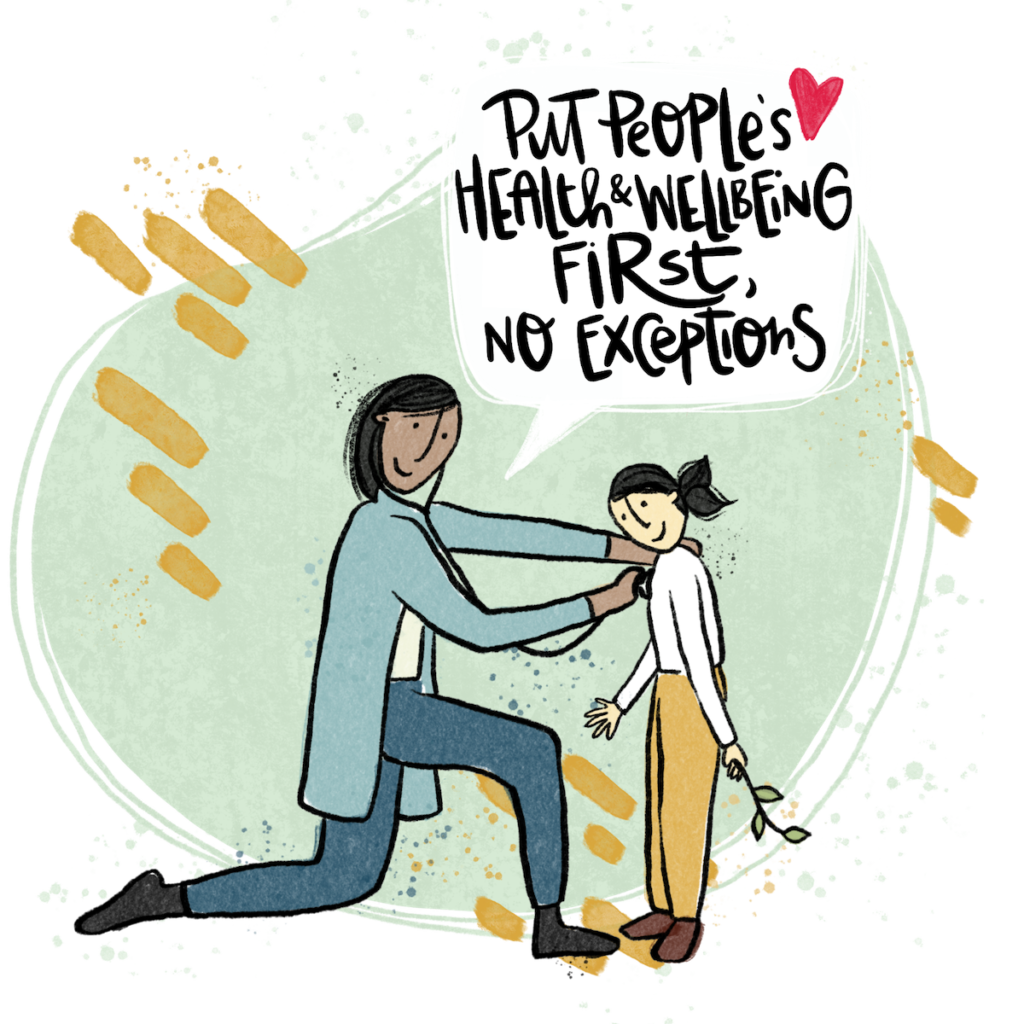
Put people’s health and wellbeing first. No exceptions
Health is a human right, and is interdependent with the health and wellbeing of ecological systems.
read more
Recognizing this, ensure that all policies and programs address the social, economic and environmental determinants of health and are responsive to the climate emergency, which is, in itself, a health crisis . Learn from the pandemic: develop policies and make investments that keep communities and workplaces, particularly those on the frontlines, safe. Increase the resilience of our health and social systems – expand and invest in health services, social services and frontline services everywhere. Ensure services are public, culturally safe, linguistically appropriate, and accessible to all without discrimination based on status, location, or circumstance – including to Indigenous peoples living on and off reserve, people in remote communities, migrants, and undocumented people.
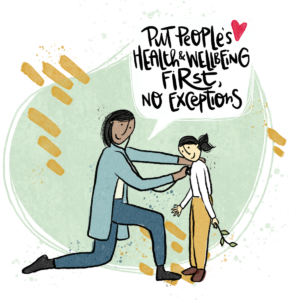
Strengthen the social safety net and provide relief directly to people
Focus relief efforts on people – particularly those who are structurally oppressed by existing systems.
read more
Prioritize redistributive policies and social services that meet the immediate and long-term needs of all people and eliminate social, economic, and wealth inequalities. Rebuild a single-tier immigration system with permanent resident status for all.
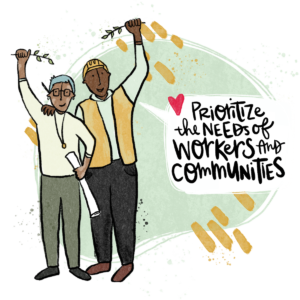
Prioritize the needs of workers and communities
Government support to any sector should be accompanied by conditions that ensure support flows to workers, including migrant workers and students, and communities – not to shareholders and corporate executives.
read more
Support must be distributed in a manner consistent with Indigenous sovereignty, a climate resilient economy, and worker rights, including safe and fair labour standards and a right to unionize. Improved conditions for essential service workers must be maintained beyond this crisis.
Bailout packages must not encourage unqualified handouts, regulatory rollbacks, or regressive subsidies that enrich shareholders or CEOs, particularly those who take advantage of tax havens. These programs must support a just transition away from fossil fuels that creates decent work and leaves no one behind.
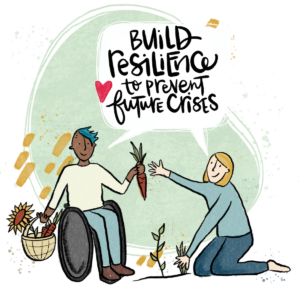
Build resilience to prevent future crises
We cannot recover from the current crisis by entrenching systems that will cause the next crisis.
read more
We must invest in sustainable infrastructure and build resiliency within communities, ensuring that people can access public essential services, meet their basic needs, and engage in cultural and artistic expression. Recovery plans should move us toward a diversified economy and systems that reduce social and economic inequity; that respect the limits of the planet; that protect land, water, and air; that uphold human rights and rights of Indigenous peoples; that support people who are not in the workforce to thrive; that create decent jobs; and that foster social, emotional, and cultural health and resiliency from infants to elders.
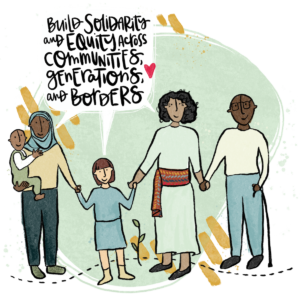
Build solidarity and equity across communities, generations, and borders
In a globalized world, what happens to one of us matters to all of us.
read more
A Just Recovery must be guided by the principles of equity, solidarity, and sustainability across domestic and international relations. Recovery plans must honour and expand human rights, including the rights of Indigenous peoples, and advance gender equity while opposing authoritarian regimes and oppressive systems. Emergency expenditures and measures must not be used as an excuse to subvert or suspend human rights, to centralize or reduce checks and balances on power, or to revert to austerity, protectionism, xenophobia, racism, ableism or pre-pandemic systems that sustain structural inequalities.
Canada has the historical obligation and the resources to ensure that, both domestically and internationally, funding and resources are provided to enable individuals and communities to thrive, engage in democratic institutions, and assert their rights and live with dignity.
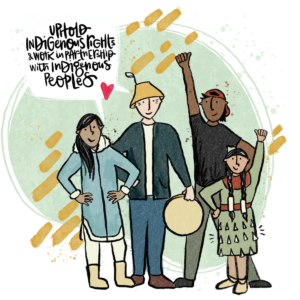
Uphold Indigenous Rights and work in partnership with Indigenous peoples
A Just Recovery must uphold Indigenous Rights and include the full and effective participation of Indigenous Peoples, in line with the standard of free, prior, and informed consent.
read more
Indigenous Peoples require sustained resources and investments that stimulate Indigenous economies, create healthy communities, and protect the lands and waters. Indigenous communities need investment in infrastructure, along with social and health services. In recognizing Indigenous sovereignty, communities must have control over their housing, water, food, and energy. A Just Recovery must include robust renewable energy policy that ensures Indigenous ownership and equitable partnership of renewable energy projects in Indigenous homelands.
Indigenous laws, values, customs, and traditions must be recognized and upheld, including the need for the implementation of the United Nations Declaration on the Rights of Indigenous Peoples in all jurisdictions.
About
These principles were developed by organizations working together from communities across the country. Collectively, we are committed to a just future that puts the health and wellbeing of ALL peoples and ecosystems first, and builds a more equitable, resilient, and sustainable society.
more
Building on the foundation of these shared Principles of a Just Recovery, we invite organizations across the country to share their specific policy recommendations informed by the lived experiences and voices of the communities they work with and represent. We offer these principles as a shared platform by which we can amplify one another’s voices and work together towards a more resilient and just world that puts people and ecosystems first.
These Principles were adapted from the International Principles for a Just Recovery to address the specific Canadian context, as well as demonstrating alignment with the international community.
